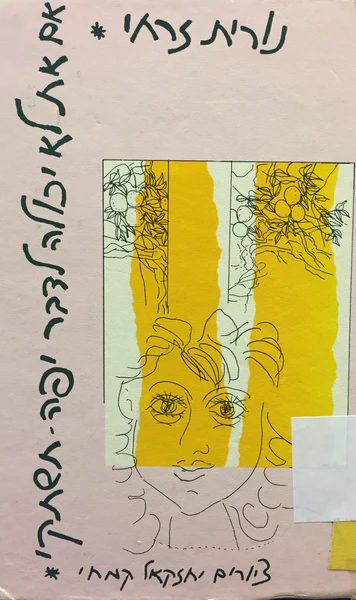
If You Can’t Say It Politely, Don’t Say It At All
This poignant story is the first-person narrative of 12-year-old Molly (Amalia) who lives with her hard-working, discouraged mother and self-centred, cheeky 16-year-old sister. Her father, Zangwil, was a writer who died ten years ago. After his death the family moved to a kibbutz where Molly was very unhappy. Later, her mother married Boris who suffered a stroke and returned home disabled.
Molly’s “diary” is a sad tale; in the kibbutz she feels like an outsider, her mother is the target of ridicule; at school she feels a painful division between the rich and powerful and the ‘ordinary’ children. She will not accept charity and feels that her best friend is betraying her. Zarchi portrays Molly’s vulnerability and anguish with great sensitivity. She also struggles with her ambivalent feelings towards her mother; on the one hand she is her source of security and happiness; but on the other, she sometimes feels that her mother doesn’t really care about her. She dreams of having a house of her own, far away in the forest, where she will make a home for all the stray dogs. She also has ambivalent feelings towards her sister and Boris, for whom she feels both pity and contempt.
Zarchi has admirably conveyed the inner world of a 12-year-old on the brink of adolescence, with all its uncertainties.


| Title | If You Can’t Say It Politely, Don’t Say It At All |
|---|---|
| Writer's Last Name | Zarchi |
| Writer's First Name | Nurit |
| Genre | Children |
| Ages | 10-14 |
| Illustrations | Yehezkel Kimchi |
| Publisher (Hebrew) | Sifriat Poalim |
| No. Pages | 74pp. |
| Book title - Hebrew (phonetic) | Im At Lo Yechola Le-Daber Yafeh - Tishteki |
